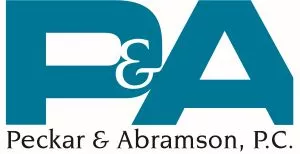In a recent United States District Court for the District of Maryland decision, U.S. ex rel. Birckhead Electric, Inc. v. James W. Ancel, Inc., 2014 WL 2574529 (D. Md. June 5, 2014), the Court found that an arbitration provision in a construction contract that binds only one party is unenforceable. This means a party can be forced to litigate a dispute even though the contract contains an arbitration provision. Since such arbitration provisions are commonplace in the construction industry, this decision is bound to have significant implications for contractors, owners and sureties in drafting and enforcing their contracts.
The Facts
Birckhead Electric, Inc. ("Birckhead") entered into a subcontract with James W. Ancel, Inc. ("JWA"), the general contractor, for the installation of electrical systems at the Baltimore Army Reserve Center. The subcontract contained an arbitration provision which, in relevant part, provided that: All disputes between the Contractor and Subcontractor, not involving the Owner's act, omissions or responsibilities shall, at the Contractor's sole option, be resolved by arbitration in accordance with the rules of the American Arbitration Association. Subcontractor agrees that any such arbitration proceedings shall, at the Contractor's sole option, be consolidated with any arbitration proceedings between the Contractor and any other party. This agreement to arbitrate shall be specifically enforceable under the prevailing arbitration law...1
A dispute over payment arose between the parties and Birckhead fi led a lawsuit against JWA for breach of contract and its surety under the Miller Act. JWA and its surety filed a motion to dismiss for lack of jurisdiction, or alternatively, to stay pending arbitration. JWA and its surety argued that the lawsuit should be dismissed or stayed pending outcome of the arbitration mandated by the subcontract. In response to the motion, Birckhead contended that the arbitration clause was unenforceable because it lacked mutual consideration.2
The Court's Decision
The Court began its analysis by noting that the Federal Arbitration Act ("FAA") represents "a liberal federal policy favoring arbitration agreements" and that "[u]nder the FAA, a district court must stay judicial proceedings involving issues covered by arbitration agreements upon a motion by any party."3 The Court also noted that the FAA makes arbitration agreements "valid, irrevocable, and enforceable, save upon such grounds as exist at law or in equity for the revocation of any contract."4 Thus, the Court ruled that "the arbitration agreement must be valid and enforceable as determined by state law."5
The Court next looked to Maryland law which holds that "to be binding and enforceable, an arbitration agreement must be a valid contract supported by consideration" that is found within the arbitration provision itself.6 Indeed, the Court explained that it cannot look beyond the arbitration provision itself for consideration. The Court went on hold that under Maryland law "[a]n arbitration provision that binds only one party lacks mutual consideration, and thus, is unenforceable."7 Since the arbitration provision obligated the subcontractor, Birckhead, to arbitrate all claims at the sole discretion of the general contractor, JWA, the Court determined that the arbitration agreement was not supported by mutual consideration. Thus, the Court ruled that the arbitration provision was unenforceable and denied JWA's and its surety's motion to dismiss or stay pending arbitration.8
Implications of the Court's Decision
The Court's decision in Birckhead renders unilateral arbitration provisions in construction contracts unenforceable in Maryland. If the contract contains such a unilateral arbitration provision, this could frustrate a contractor's intentional decision to elect arbitration as the forum for dispute resolution. As a result, contractors should closely examine the arbitration provisions contained in their contracts and subcontracts, and if necessary, modify such provisions to ensure enforceability in light of this decision.
Footnotes
1 U.S. ex rel. Birckhead Electric, Inc., 2014 WL 2574529, at *1 (emphasis added).
2 Id
3 Id. at *2.
4 Id. (quoting 9 U.S.C. § 2 (2012)).
5 Id. at *2.
6 Id. (citing Cheek v. United Healthcare of Mid-Atlantic, Inc., 835 A.2d 656, 661 (Md. 2003)).
7 Id. (citing Cheek, 835 A.2d at 669).
8 Id. at *2.
The content of this article is intended to provide a general guide to the subject matter. Specialist advice should be sought about your specific circumstances.


